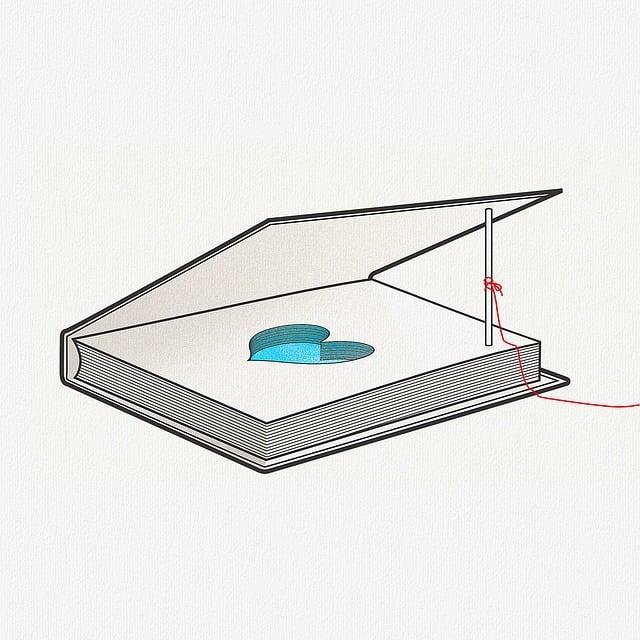Are you a fitness enthusiast on a quest for peak performance? Or perhaps you’re looking to boost your muscle gains and athletic prowess? If so, you’ve likely come across the supplement known as creatine. Widely regarded as a game-changer in the world of sports nutrition, creatine has gained popularity among athletes and bodybuilders alike. However, amidst the praise and success stories, a question often lingers: does creatine cause gout? In this article, we will unravel the link between this potent supplement and the potential health impact it may have on those susceptible to gout. Prepare to delve into a world where science and well-being intersect, as we explore the truth behind this intriguing debate.
1. Understanding Creatine: A Popular Supplement for Fitness Enthusiasts
Creatine is a widely popular dietary supplement that has gained traction among fitness enthusiasts. This compound, naturally produced in the body, is found in small amounts in certain foods like meat and fish. It is an essential component for providing energy to our muscles during high-intensity exercises.
When you take creatine as a supplement, it increases the levels of phosphocreatine in your muscles. This helps to generate more adenosine triphosphate (ATP), which is essentially the fuel that our muscles need for quick and intense movements. As a result, athletes and bodybuilders often use creatine to enhance their performance and maximize their muscle gains.
There are several forms of creatine available on the market, with creatine monohydrate being the most widely used and studied. Some other popular forms include creatine ethyl ester and creatine phosphate. These supplements come in various forms, such as powders, capsules, and liquids, making it convenient for different preferences.
It’s important to note that while creatine has been extensively researched and is generally considered safe for consumption, it may not be suitable for everyone. Individuals with kidney problems or those taking certain medications should consult their healthcare provider before starting creatine supplementation.
Incorporating creatine into your fitness routine can potentially provide several benefits. These include increased strength, improved muscle mass, enhanced exercise performance, and faster muscle recovery. However, it’s crucial to maintain proper hydration while taking creatine, as it draws water into the muscles and may cause dehydration if not consumed with enough fluids.
Overall, understanding the role and potential benefits of creatine can help you make an informed decision about incorporating it into your fitness regimen. Remember to always follow the recommended dosage and consult with a healthcare professional if you have any concerns or questions.
2. Demystifying Gout: A Painful Joint Condition
Gout is a type of arthritis that can cause excruciating pain in the joints, most commonly affecting the big toe. Despite its name, gout is not some mythical condition that only occurs in the elderly or those with extravagant lifestyles. In fact, it can affect anyone, and understanding the factors that contribute to its development is key in demystifying this painful joint condition.
One of the major culprits behind gout is an excessive buildup of uric acid in the body. Uric acid is a waste product that forms when the body breaks down purines, which are found in certain foods and drinks. When there’s an overabundance of uric acid, it can accumulate and form sharp crystals in the joints, leading to intense pain and inflammation. Apart from diet, other factors such as genetics, obesity, certain medications, and certain health conditions can increase the likelihood of developing gout.
To help manage gout and prevent further flare-ups, it’s essential to make certain lifestyle changes. First and foremost, maintaining a healthy weight is crucial, as excess pounds can contribute to higher uric acid levels. A balanced diet that limits foods rich in purines, such as red meat, organ meats, seafood, and alcohol, can also be beneficial. Staying well-hydrated is important too, as it helps flush out the excess uric acid from the body. Lastly, regular physical activity, such as walking or swimming, can not only aid in weight management but also improve joint flexibility and reduce the risk of gout attacks. By understanding the causes and making these lifestyle adjustments, individuals can gain control over this painful joint condition known as gout.
3. Exploring the Link: Does Creatine Trigger Gout?
In recent years, there has been growing speculation about whether creatine, a popular supplement among athletes and bodybuilders, can trigger gout, a painful form of arthritis. Gout is characterized by sudden and severe attacks of joint pain, often affecting the big toe. While the link between creatine and gout is still under investigation, it is essential to explore this topic to gain a better understanding of how creatine may or may not influence the development of gout.
First and foremost, it’s important to note that gout is primarily caused by an excess buildup of uric acid in the bloodstream. Uric acid is a waste product that is typically filtered out by the kidneys and excreted through urine. However, when the body produces too much uric acid or fails to eliminate it efficiently, the excess uric acid can crystallize and deposit in joints, leading to gout. Now, while it is true that creatine supplementation is associated with increased levels of uric acid, there is limited evidence to suggest that creatine directly triggers gout in individuals who are not already prone to the condition. Several studies have found that creatine supplementation may elevate uric acid levels in the short term, but these levels tend to return to normal over time. Therefore, for individuals without a preexisting susceptibility to gout, creatine intake alone may not be enough to cause the development of gout.

5. Navigating the Evidence: What Science Says About Creatine and Gout
When it comes to the connection between creatine and gout, it’s important to look closely at the scientific evidence. While some people believe that creatine supplements may contribute to the onset or worsening of gout, the research findings paint a different picture.
1. Does creatine contribute to gout? Research suggests that creatine supplementation does not directly cause gout or increase the risk of developing gout in most individuals. However, it is important to note that everyone’s body is unique, and individual responses to creatine supplementation may vary. If you have a history of gout or are at a higher risk due to certain factors like age, obesity, or kidney problems, it’s always best to consult with a healthcare professional before starting any new supplements.
2. Purine metabolism and gout. Gout is a form of arthritis that occurs due to excessive levels of uric acid in the blood, leading to the formation of sharp crystals in the joints. Purines, compounds found in certain foods and cells of the body, are broken down into uric acid. While creatine is not a source of purines and does not directly impact uric acid production, it’s worth noting that dietary choices, such as consuming high-purine foods (like organ meats and seafood), can have a more significant impact on uric acid levels in the body. Therefore, it is advisable to focus on maintaining a balanced diet and moderating intake of high-purine foods, especially if you have been diagnosed with gout.
8. A Well-Informed Decision: Weighing the Pros and Cons of Creatine Use
Before embarking on any dietary supplementation, it is essential to thoroughly evaluate both the advantages and drawbacks. When it comes to creatine use, conducting a well-informed analysis can help you make an educated decision. Here, we delve into the pros and cons of using creatine as a supplement to assist you in weighing your options.
Benefits of Creatine:
- Enhanced Performance: One of the primary benefits of creatine supplementation is its potential to boost athletic performance. It can enhance strength, power, and endurance, making it a popular choice among athletes and fitness enthusiasts.
- Muscle Growth: Creatine has been linked to an increase in muscle size and lean body mass. By promoting protein synthesis, it aids in the development of lean muscle and assists in the recovery process post-workout.
- Improved Cognitive Function: Research suggests that creatine supplementation may have potential cognitive benefits. It could enhance memory, attention, and overall cognitive performance.
- Availability and Cost: Creatine is easily accessible, whether in powder or capsule form, and is relatively affordable compared to many other supplements. Its widespread availability and reasonable pricing make it a convenient option for those looking to incorporate it into their fitness routine.
Drawbacks of Creatine:
- Water Retention: One common side effect reported by creatine users is water retention, which can lead to temporary weight gain and a bloated appearance. However, this is often a short-term effect that subsides once creatine usage is discontinued.
- Individual Variability: While many individuals experience benefits with creatine supplementation, it is important to note that individual responses can vary. Some people may not respond as effectively in terms of performance enhancement or muscle growth.
- Potential Side Effects: Although generally safe for most individuals when taken within recommended dosages, creatine may cause gastrointestinal issues such as stomach cramps, nausea, or diarrhea. It is always advisable to consult with a healthcare professional before starting any supplementation regimen, especially if you have any pre-existing medical conditions.
Frequently Asked Questions
Q: What is creatine and how is it commonly used?
A: Creatine is a natural compound found in our muscles and certain foods, like meat and fish. It is widely used as a dietary supplement by athletes and bodybuilders to improve athletic performance and increase muscle mass.
Q: What is gout and how does it affect the body?
A: Gout is a form of arthritis that occurs when there is an excess of uric acid in the body. This build-up can cause crystals to form in the joints, leading to sudden and intense pain, inflammation, and swelling.
Q: Can taking creatine supplements contribute to the development of gout?
A: There is currently no scientific evidence to suggest that creatine supplements directly cause gout. However, these supplements can cause an increase in uric acid levels, which could potentially trigger gout attacks in individuals who are already predisposed to the condition.
Q: Who is at a higher risk of developing gout?
A: Gout is more common in men, particularly those over the age of 40. Individuals with a family history of gout, obesity, high blood pressure, diabetes, or kidney disease are also at a higher risk.
Q: How can one reduce the risk of gout while taking creatine supplements?
A: If you are considering taking creatine supplements and want to minimize the risk of gout, it is important to stay hydrated, maintain a balanced diet, and limit the intake of foods high in purines, such as red meat, shellfish, and alcohol. Regular exercise and maintaining a healthy weight can also help reduce the risk of developing gout.
Q: What are some potential side effects of creatine supplementation, aside from gout?
A: Creatine supplementation is generally considered safe when used as directed, but some individuals may experience side effects. These can include stomach discomfort, diarrhea, nausea, muscle cramps, and weight gain due to water retention.
Q: Can creatine supplementation benefit individuals without triggering gout attacks?
A: Yes, creatine supplementation has been shown to have numerous benefits for individuals engaging in high-intensity workouts or strength training. It can improve muscle strength, increase energy levels, and enhance overall athletic performance. However, it is important to consult with a healthcare professional before starting any new dietary supplement regimen.
Q: What should individuals with gout consider before taking creatine supplements?
A: If you have gout or a history of gout attacks, it is advisable to consult with a healthcare professional before considering creatine supplementation. They can assess your overall health, evaluate potential risks, and provide recommendations based on your specific circumstances.
Q: Are there any alternative options to creatine supplementation for individuals concerned about gout?
A: Yes, there are alternative options for individuals who are worried about the risk of gout. These include focusing on a well-balanced diet rich in lean proteins, carbohydrates, and healthy fats, as well as regular exercise to support muscle growth and performance. Consulting with a registered dietitian or sports nutritionist may also provide helpful guidance.
Future Outlook
In conclusion, it is important to understand the potential health impact of using creatine supplements and its relationship with gout. While some studies suggest a possible connection between creatine and gout, further research is needed to fully understand this link. It is always wise to consult with healthcare professionals before starting any new dietary or exercise regimen, especially if you have a history of gout or other health conditions. By staying informed and making informed decisions, we can prioritize our health and well-being. So, if you’re considering using creatine or have concerns about its impact on gout, be proactive and seek professional advice to make the best decision for your own unique situation. Remember, your health is your greatest asset!






